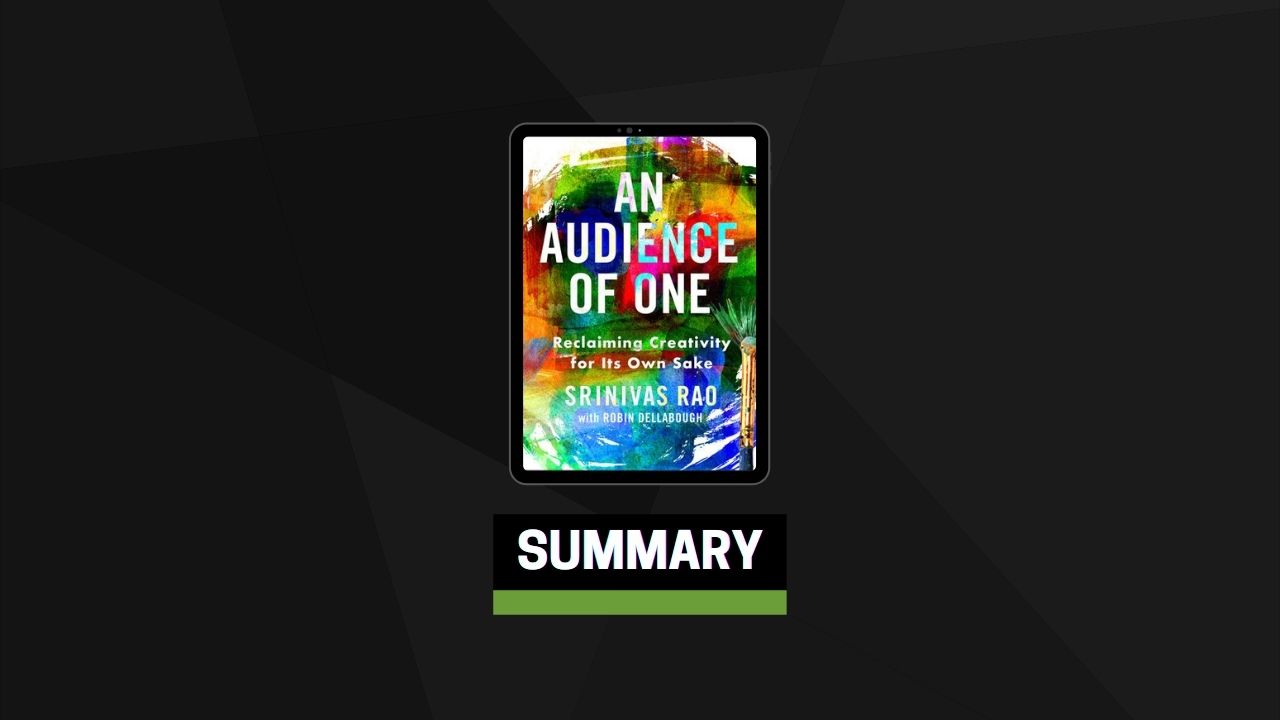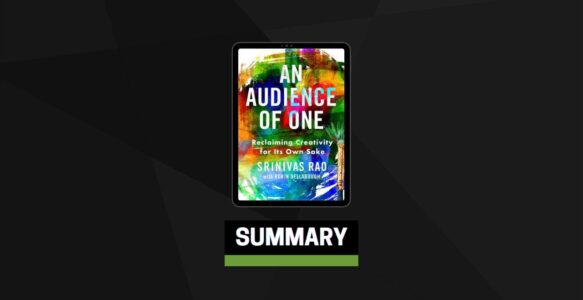The Downside of Rewards Over Process
If a podcaster is thinking about the potential downloads while conducting an interview, the quality of the interview declines. They’re no longer present, conversations come across as canned, and they end up trying to sound impressive as opposed to inspiring or informative.
If an author is thinking about reviews and bestseller lists while writing, the quality of their books declines. It places their focus on elements of creative work that are completely out of their control. What makes a great piece of writing great is an unwavering commitment to the craft, not the prize
We must learn to let go of our attachments and expectations if we’re going to derive satisfaction from our work and create art that we’re proud to put our signature on.
When we value product over process, we depart from what psychologist and author Carol Dweck calls a growth mind-set. With a growth mind-set, you believe that you can continue to grow and learn. With a fixed mind-set, any perceived flaws or strengths are seen as permanent. We believe our well-being is determined entirely by what’s out of our control, and our motivation and effort all begin to dwindle.
Creativity Makes Us Happy
You might assume that you have to be a capital-A artist, painter, or poet “creative genius” in order to benefit from the creativity-happiness connection. But as Pacific Standard staff writer Tom Jacobs noted in his analysis of the Greensboro study, “you don’t have to be a master poet or painter to reap the emotional rewards.”
Creativity, it turns out, doesn’t just contribute to our happiness but also to our mental and physical health. Expressing ourselves creatively is a form of self-care in many ways. It gives us the opportunity for self-reflection. And as we build our creative skills, we build confidence. Many therapists even prescribe creative expression to their patients for healing purposes.
Creativity Can Increase Productivity
An ongoing commitment to our creativity, a daily practice, regardless of what form it takes, enables us to experience progress. When we experience progress, we gain creative momentum and productivity. As a result, we can reach a state called “flow” or “deep work” more readily, which increases our happiness. Our brains are wired to crave this state of flow. It’s when there’s no place you’d rather be and nothing else you’d rather be doing. It’s the feeling I get when I catch a perfect wave and the world around me disappears. Flow is a state in which we are singularly focused on the task at hand, our senses heighten, and we lose track of time. The activity itself becomes the reward.
Flow puts us into a state of almost unparalleled joy. The process becomes so intrinsically rewarding that we’re able to easily detach from the outcome. Flow not only makes time fly by, but leads to disproportionate increases in creative output. What usually might take two hours takes thirty minutes when we are in flow.
Trust Yourself
As Steven Pressfield wrote in his book Turning Pro, “When we project a quality or virtue onto another human being, we ourselves almost always already possess that quality, but we’re afraid to embrace (and to live) that truth.” Discovering our own truth and embracing it begins with evaluating our values.
Listen to Your Values
We’ve bought into the notion that if you do exactly what somebody in a position of authority tells you, you will get the promised result, despite plenty of evidence to the contrary. This is the great fallacy of authority and influence. When we do anything that’s out of alignment with our values, even if we succeed, it will feel like a failure because it wasn’t true to our hearts. The easiest thing to forget is that the people who influenced our values won’t be the ones to live with the consequences of whatever choices we make.
In the simplest of terms, our values are determined by whatever it is that we choose to make the highest priority in our lives and why we choose to do something. Money, fame, time, freedom, and opportunity for self-expression are all examples of values.
Learn to Be Present
Dwelling on the past and worrying about the future produces false narratives that drown out the sound of our most authentic voice. When we’re present, we’re fully engaged in whatever we’re doing. When we’re not present, we either do not create or what we do create feels safe, manufactured, and inauthentic.
Cultivate Solitude
By cultivating solitude, we’re able to turn down the volume on everything else in our lives and find enough silence for the sound of our creative voice. Entrepreneur Brian Scudamore wrote a piece on Medium titled “Why Successful People Spend 10 Hours a Week Just Thinking.” Often “thinking,” or solitude, can feel unproductive. Many people struggle with solitude because it can make us feel bored, lonely, and as though we’re doing nothing.
Curiosity and Questions
Curiosity is one of the most important traits you can cultivate to learn to listen to yourself and fuel your creativity. “Discovery is predicated on curiosity. The more curious you are, the more willing you will be to engage in each new experience. The easiest way to tap into your natural curiosity is by asking questions,” says Tina Seelig in her book Insight Out.
What Do You Need to Create? Listening to Your Body
Part of listening to yourself means listening to your body. It’s hard to be at your best creatively when you’re not at your best physically. Creative habits require energy. Energy comes from proper self-care in the form of sleep, nutrition, and exercise. Without adequate amounts of all three, you are at a self-imposed handicap and you can’t sustain peak creativity.
Your Physical Space
When we clear physical clutter, we make mental space. “Messy surroundings and an untidy life reflect a weakened metaphysical and psychological state. . . . Order helps you feel confident,” says author Stuart Wilde.
Think about how you feel when you get into your car right after a car wash or step into your home after it’s been cleaned. You might feel calm, focused, clear, and inspired.
Your Tech Environment
The paradox of technology is that the very tools that facilitate our creativity also inhibit it. How we approach and resolve that paradox is essential to our creativity. When our use of technology is not mindful and deliberate, we become its slave rather than its master. And this gradually erodes our creative capacities, attention spans, and the depth needed to create work of consequence and significance.
Connection, Support, and Community
Many creators have a tendency to go into a cave when working on a big project. Everything other than the work is a distraction. We’re more connected than we’ve ever been and yet we’re lonelier than we’ve ever been. But to sustain creativity, we need support and community.
By building teams, finding creative partners, and turning to online and in-person communities, we ensure that we don’t become completely isolated during the creative process. Listening to others is equally as significant as any other form of listening.
Deliberate Consumption and Creativity
We log in to Facebook, scroll through the news feed, and click away at whatever grabs our attention. We open up Netflix and search endlessly for the next TV show to binge-watch.
Deliberate consumption allows us, to quote the title of a book by Austin Kleon, to “steal like an artist.” Everything we consume plants a potential seed for something we might create. We borrow ingredients from other people and create our own recipes and creative dishes. It’s tempting to think of consumption solely in the form of various media formats. But deliberate consumption extends far beyond that. It can take the form of conversations with our close friends, visits to a museum, or even a short road trip. The point is that you are making a deliberate effort to take in information from the world around you.


